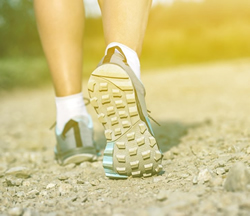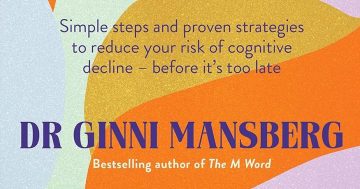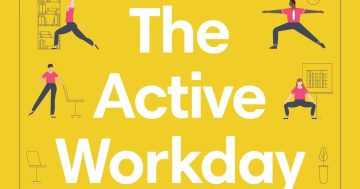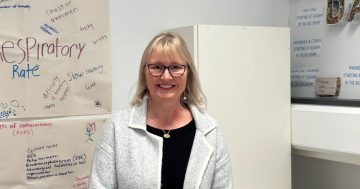Dr Gordon Spence* says the earlier we commit to habits that support healthy ageing the more we’ll benefit later in life.
 What comes to mind when you hear the words ‘healthy ageing’? Images of active seniors, lawn bowls and lovely walks in the park?
What comes to mind when you hear the words ‘healthy ageing’? Images of active seniors, lawn bowls and lovely walks in the park?
If so, you might need to rethink things a little.
Healthy ageing is very much in the spotlight right now.
In case you don’t know, the World Health Organisation (WHO) has declared 2021-2030 The Decade of Healthy Ageing.
It’s a global response to the issues of an ageing population and the economic, social and health challenges that come with it.
Whilst the WHO is acutely focused on issues that concern older adults, the concept of healthy ageing is not limited to the over 60s.
That’s because ageing is something that affects all of us and how we age in the later stages of our life is strongly influenced by how we age throughout our entire life.
So, the earlier we commit to habits that support healthy ageing – like regular physical activity – the more we’ll benefit later in life.
Physical activity and healthy ageing
One aspect of life that strongly impacts a person’s ability to age well is physical activity.
Exercise scientists and physiologists have been telling us for years that physical activity changes the rate at which we age, and in some cases can even reverse it.
Indeed, research has shown that three weeks of complete physical inactivity can decrease cardiovascular fitness to levels that equate to 40 years of ageing! More encouragingly, it has also been shown that such losses can be quickly recovered once people start moving.
As such, physical activity and healthy ageing are closely tied.
That’s great when we’re young because we have a natural inclination to keeping moving, and often, enough time to devote to it.
As a result, we’ve usually at our fittest and strongest in our mid-20s because we’re building bone, strengthen muscle, and keeping our organ systems well regulated.
Mid-life: A critical period
Healthy ageing is not something that’s isolated to the latter stages of life.
It really describes a lifelong process that can be influenced – positively or negatively – at any stage of life.
A period of life that often has a significant negative impact on healthy ageing is the period often referred to as ‘midlife’.
These are decades that cover a person’s 30s, 40s and 50s.
It’s a period of vulnerability because these are the home-building, career-developing, child-rearing years.
That makes it an intense, productive stage of life where we are usually juggling multiple competing goals and often doing so at the expense of ourselves.
It’s also a time when regular physical activity is often relegated to the backburner and seen as a nice-to-have rather than a must-have.
When this happens, people can start to become habitually inactive and increase their susceptibility to lifestyle diseases that badly impact health and ageing (e.g., diabetes).
As such, these midlife years are a good time to be thinking about healthy ageing and what you might stand to gain if you were to get moving more frequently than you do now.
Physical activity can love you back!
Now I know from experience that reconnecting with physical activity in midlife is much easier said than done.
That’s because when we make our health a bigger priority, it forces us to reorganise our lives and use creative problem-solving to strike a new balance.
But, as challenging as that might be, we can at least be reassured that our efforts to change are likely to pay dividends.
As the science of physical activity keeps highlighting, the pay back we get when we get moving and keep moving can be considerable.
It can also happen quickly, almost as though our bodies have been patiently waiting for us to – if you’ll excuse the pun – ‘get with the program’.
The key to all of this though, like any sort of change, is motivation.
And when it comes to a reconnection with physical activity, the best place to start is with things that you are likely to find interesting and enjoyable.
Whilst that can take a little time to become clear, it’s worth taking the time to explore it because if you commit yourself to something you really like, there’s more chance you’ll continue with it.
And the more you continue with it, the more likely you’ll age in a heathy way and help to set the platform for an active, fulfilling life that can extend well into your later years.
*Dr Gordon Spence, author of Get Moving. Keep Moving, is a highly sought-after speaker, coach, educator and author who helps clients to live well and perform well.
For more information visit www.healthyageingproject.com











